The Speaker of the House of Representatives Rt. Hon. Abbas Tajudeen, Ph.D, on Monday, February 26, 2024, inaugurated the House Committee on the Review of the Constitution of the Federal Republic of Nigeria, 1999 (As Altered).
At the inauguration ceremony were top government functionaries and representatives of three arms of government – legislature executive and judiciary, as well as those of the federal, state and local governments.
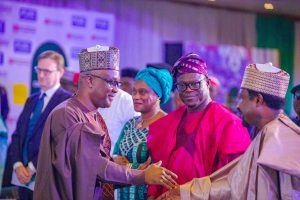
Others were traditional rulers, spiritual leaders, representatives of ethnic nationalities, professional bodies, women groups, persons with disabilities, technical and development partners (both local and international), as well as civil society and non-governmental organisations.
The Speaker said: “Today marks yet another significant moment in our democratic journey towards a more ‘perfect union’. The inauguration of the House Committee on the Review of the Constitution (CRC) of the Federal Republic of Nigeria, 1999 (as amended) is not just a ritual but a reflection of our collective resolve to ensure that the foundational document of our democracy evolves to meet the aspirations of all Nigerians.

“Our population in 1999 was about 120 million. However, by 2023, we had exceeded 220 million people. These rapid changes underscore the need to continuously transform the Constitution into a living and transformative document.”
While the Deputy Speaker, Rt. Hon. Benjamin Okezie Kalu is the chairman of the Committee, and the House Majority Leader, Prof Julius Ihonvbere, serves as the deputy chairman, Speaker Abbas noted that to ensure greater inclusion, the Committee would also have six additional women, one from each of the six geo-political zones. He added that the House’s zonal caucus leaders had been co-opted in an advisory capacity, to advise the Committee on issues relating to their respective zones.
“Lastly, the Committee’s secretariat will also include a representative of people living with disabilities to ensure that their concerns are properly accommodated. The mandate of the Committee is to receive and consider proposals for alteration of the 1999 Constitution (as amended); create a forum for stakeholders and the public to make inputs into the review process and collaborate with the Senate and the state Houses of Assembly as required by law,” he added.
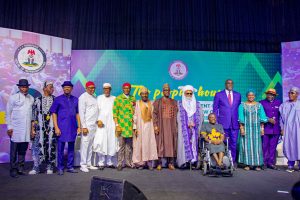
The Speaker, who described the alteration of the 1999 Constitution as a “very important national assignment,” recalled that at its inauguration on June 13, 2023, the 10th House expressed its commitment to continuous law reform. Specifically, he noted that the Legislative Agenda of the House identified streamlining and improving the constitutional reform process as a cardinal objective.
“In this regard, the House is already working on a Constitution Alteration Procedure Bill to provide a framework and a timeline for the passage of Constitution alteration bills by the National Assembly and adoption by State Houses of Assembly. The early commencement of constitution review activities by the 10th House is yet another step towards actualising our Agenda,” he added.
Speaker Abbas also said it was essential to acknowledge the journey Nigeria has embarked upon since the return to democracy in 1999. He also said the country has witnessed significant milestones and challenges alike. “Through each phase, our democracy has been tested and is still being challenged. Yet, even after 25 years, it stands resilient, reinforced by our collective belief in the principles of freedom, equality, and justice for all,” he said.
The Speaker added that the 1999 Constitution, as the supreme law of the land, has been the grundnorm of our democracy for over two decades. “Yet, like any great edifice, it requires periodic assessment and renovation to ensure it meets the changing needs and aspirations of our people,” he stressed.
While some citizens argue that the document should be entirely discarded, Speaker Abbas said it was important to remember that democratic consolidation could only be incremental and gradual. He noted that even more mature democracies have accepted this position in advancing democratic consolidation. He said, for instance, the United States has ratified 27 amendments to its Constitution.
The Speaker also noted that since the inception of the Fourth Republic, the Constitution has been subjected to five alterations with landmark changes that have strengthened the nation’s democratic institutions, federalism and governance generally.
He recalled that the First and Second Alterations provided for the financial independence of the National Assembly and the Independent National Electoral Commission, and granted the Supreme Court jurisdiction on appeals from the Court of Appeal on the elections of governors and their deputies.
He also recalled that the Third and Fourth Alterations, among others, established the National Industrial Court under the Constitution as a superior court of record, and provided for the funding of the Houses of Assembly of states directly from the Consolidated Revenue Fund of the state.
According to him, under the 9th Assembly, the Fifth Alteration made “some of the most far-reaching amendments,” as it clarified and reinforced financial autonomy for state Houses of Assembly and the Judiciary, decongested the Executive List, defined guidelines for the first session and inauguration of members-elect of the National and state Houses of Assembly, and deleted reference to the provisions of the Criminal Code, Penal Code, Criminal Procedure Act, Criminal Procedure Code or Evidence Act, among others. “All these made the Fifth Alteration the most extensive since 1999,” he stated.
The Speaker said: “We expect the Sixth Alteration under this 10th National Assembly to be the most comprehensive yet. As such, the task before the Constitution Review Committee is profound. The House Agenda is ambitious in its scope and encompasses wide-ranging issues pivotal to our national growth.
“Among these are devolution of powers, including state policing; enhancement of fiscal federalism through local government autonomy; further decongesting the Exclusive Legislative List; recognising and assigning constitutional roles for traditional institutions; and promoting inclusivity, particularly greater gender equity and women representation into appointive and elective positions.
“Regarding the latter, I implore this committee to align its work with the Legislative Agenda. I urge you to revisit the issue of additional or reserved seats for women across legislative bodies, twinning in joint tickets and conferring citizenship on foreigners married to Nigerian women.”
Speaker Abbas added: “Other critical areas for your consideration include implementing comprehensive electoral reforms to address the gaps identified in the aftermath of the 2023 general elections; strengthening the enforceability of legislative instruments; and institutional strengthening for greater accountability, among others.
“These areas are crucial for reinforcing our democracy and ensuring that the governance structure meets the needs and aspirations of all Nigerians. Several Bills have already been introduced in both the Senate and the House, touching on some of these very important issues.”
The Speaker said in making recommendations and proposals that potentially have far-reaching impacts, such as state police, he strongly recommends that the House adopts “a scientific approach grounded in empirical evidence rather than ideology, personal beliefs, or political expediency.”
Speaker Abbas pointed out that the methodology to be adopted by the Committee would emphasise inclusivity, transparency, and collaboration. From the onset, he said the House would work closely with the Executive arm of the government, both at the federal and sub-national levels.

He noted that this partnership stemmed from recognising their pivotal role in governance, ensuring that the review process is comprehensive and considers the practical aspects of implementation.
He added that the process would equally involve state Houses of Assembly to foster consensus and expedite adoption by states. “But more importantly, the process will be deeply rooted in engaging with the Nigerian people at all levels, including traditional and religious institutions, pressure groups and trade unions, ethno-religious organisations, the diaspora community and much more,” he stated.
The Speaker noted that their insights, experiences, and aspirations would be the cornerstone of the review. “We intend to harness the inputs of all Nigerians at the level of senatorial districts through open forums, public consultations, and digital platforms, ensuring that every voice is heard and considered,” he said.
He added: “I also challenge us to go beyond traditional and generic prescriptions and explore gradualism in lawmaking with the understanding that social change can be achieved in small, discrete increments rather than in abrupt strokes or grand solutions. This gradual process will allow us to pilot innovative solutions, engage in meaningful experimentation, and gather concrete data and facts to inform our decisions.
“Also, this approach ensures that reforms are not only effective but also adapted to the unique needs and challenges of our great nation. Through this careful and considered process, we can achieve sustainable and impactful changes for the good of our country and all Nigerians.”



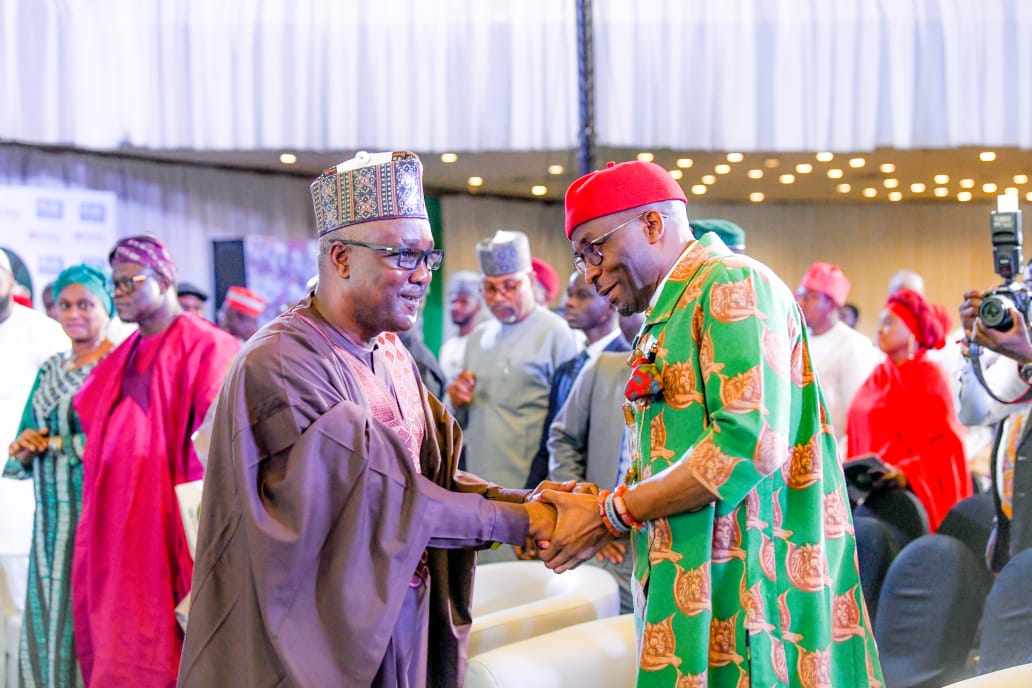
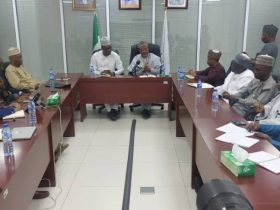



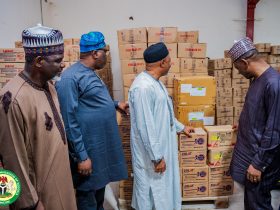
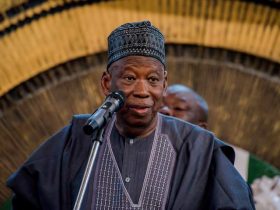
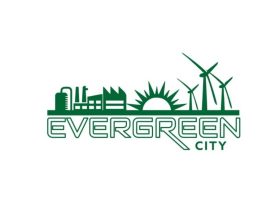

Leave a Reply